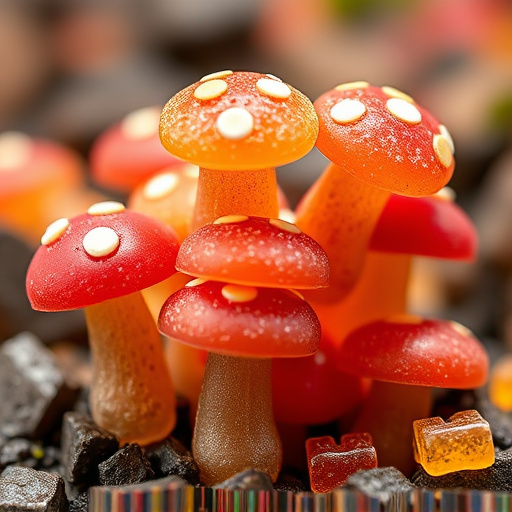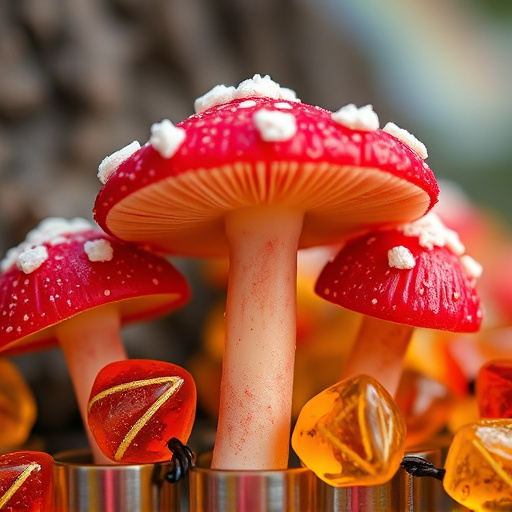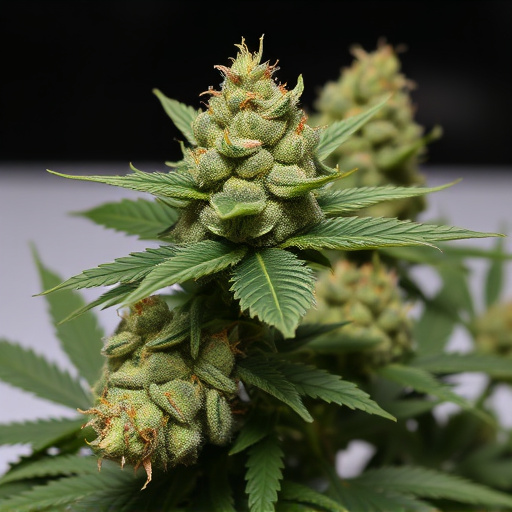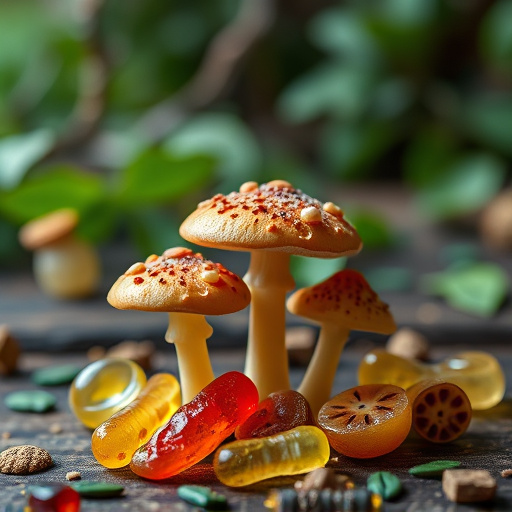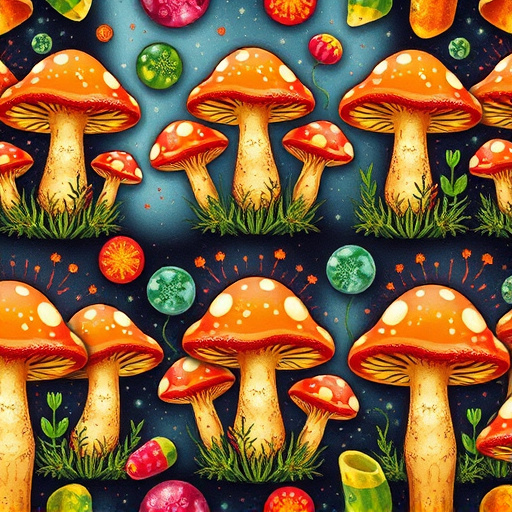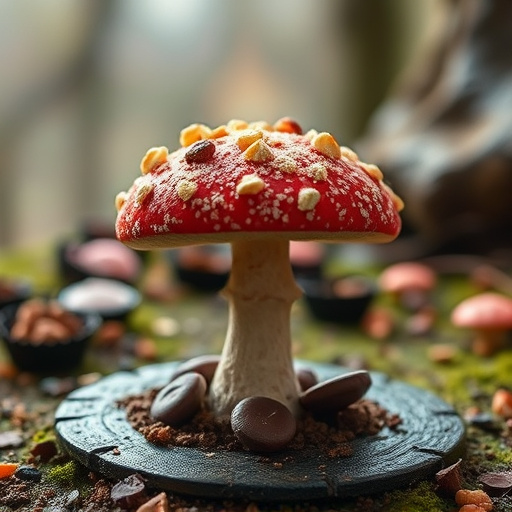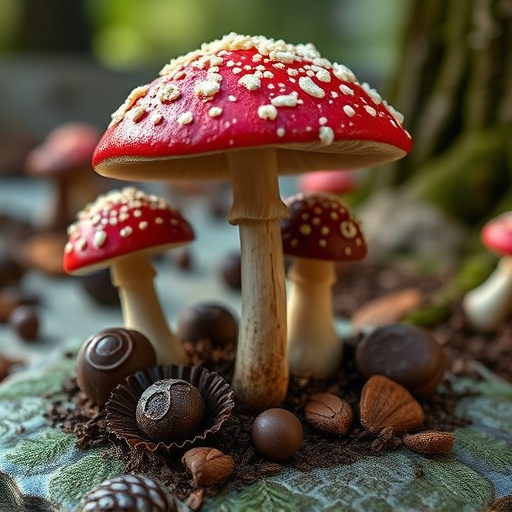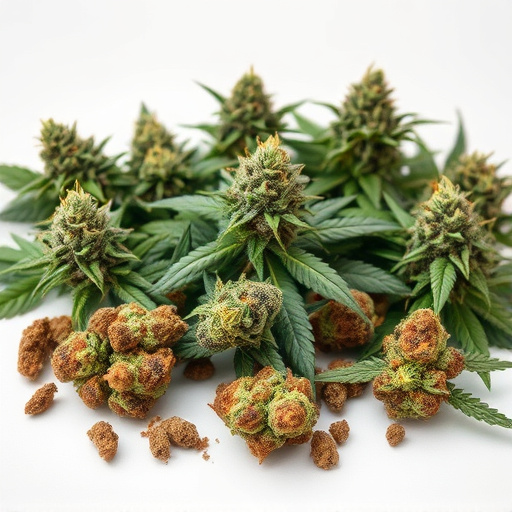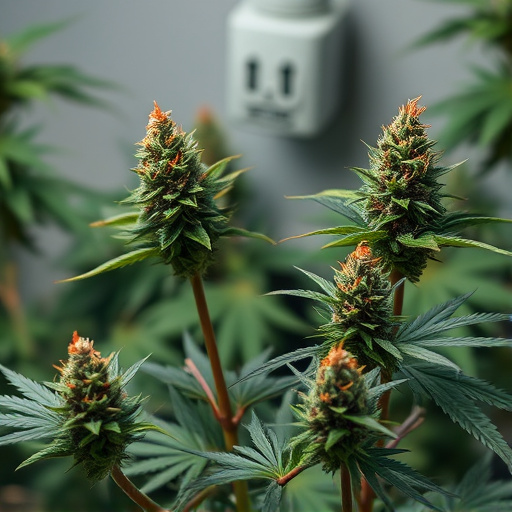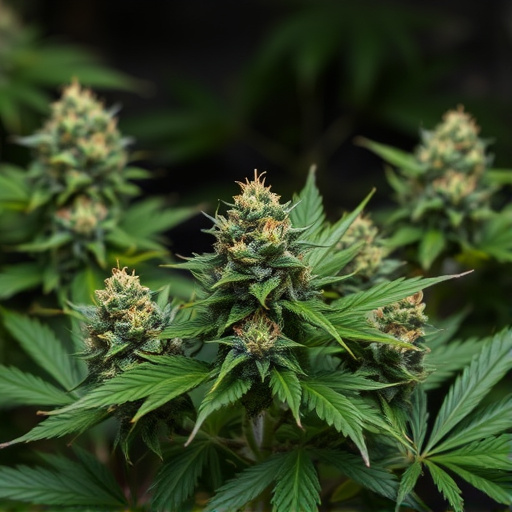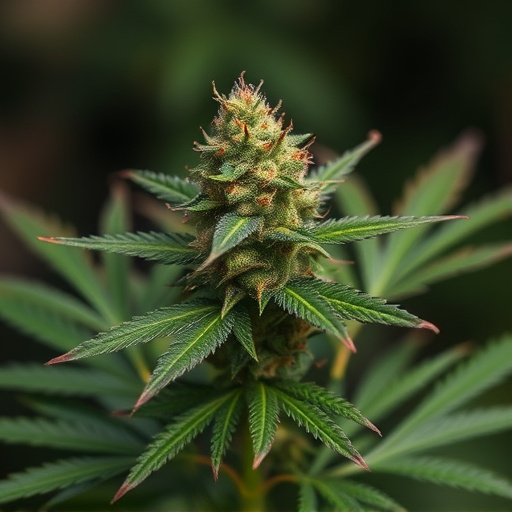Cannabis flowers contain a complex blend of cannabinoids (like THC and CBD) and terpenes that work together for medicinal purposes, including anxiety relief. Specific "anxiety weed strains" are high in CBD and low in THC, such as Harlequin or ACDC, offering calming effects without psychoactivity. Terpenes like linalool and myrcene further enhance cannabis' anxiolytic properties. For medical use, responsible practices and professional guidance are crucial; vaporization and edibles are common consumption methods.
Cannabis flowers have gained significant attention for their potential medical benefits, particularly in managing anxiety. This article delves into the intricate world of cannabis, exploring how its composition interacts with our bodies to alleviate symptoms associated with anxiety. We’ll discuss specific anxiety weed strains known for their therapeutic properties and delve into the underlying mechanisms at play. Additionally, we’ll cover safe use guidelines essential for responsible medical application.
- Understanding Cannabis Flowers and Their Composition
- The Impact of Cannabis on Anxiety: Strain Specifics and Mechanisms
- Safe Use and Considerations for Medical Application
Understanding Cannabis Flowers and Their Composition

Cannabis flowers, also known as buds, are the most recognizable and sought-after part of the plant, offering a wide range of medical benefits. These delicate flowers are composed of diverse compounds, including cannabinoids and terpenes, which work synergistically to provide therapeutic effects. Cannabinoids like THC (tetrahydrocannabinol) and CBD (cannabidiol) interact with the body’s endocannabinoid system, playing a crucial role in regulating mood, memory, appetite, and pain perception.
Anxiety weed strains, for instance, are popular among patients seeking relief from stress and panic disorders due to their high CBD content and balanced THC levels. Terpenes, aromatic compounds found in cannabis, also contribute to its therapeutic properties by influencing its flavor and potentially enhancing specific effects of cannabinoids. Understanding the composition of cannabis flowers is essential for maximizing medical benefits and selecting appropriate strains for different conditions, such as anxiety.
The Impact of Cannabis on Anxiety: Strain Specifics and Mechanisms
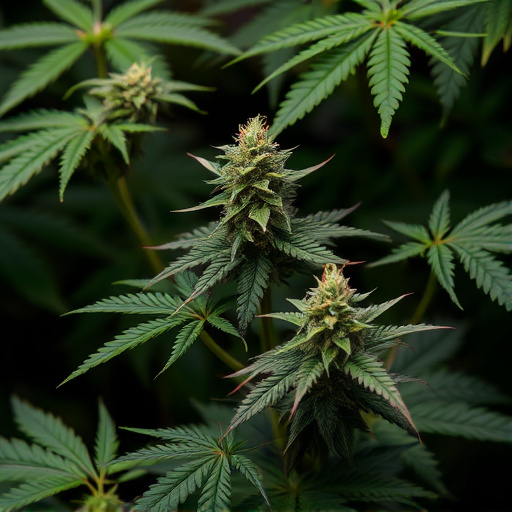
Cannabis has gained attention for its potential in managing various medical conditions, and one of its notable effects is its ability to alleviate symptoms of anxiety. The impact of cannabis on anxiety is a complex interaction between specific chemical compounds found within the plant and the endocannabinoid system (ECS) of the body. This system plays a crucial role in regulating mood, emotion, and response to stress.
Different strains of cannabis offer varying profiles of cannabinoids, such as THC and CBD, which have distinct effects on the ECS. For instance, certain high-CBD strains have shown promise in reducing anxiety without the psychoactive effects associated with THC. The mechanism involves the binding of CBD to specific receptors in the brain, modulating activity in regions linked to fear and anxiety responses. Additionally, some strains rich in terpenes, natural compounds that contribute to the unique aroma and flavor of cannabis, also play a role. Terpenes like linalool and myrcene are known for their calming effects and may enhance the anxiolytic (anxiety-reducing) properties of cannabis, making them valuable in managing anxiety weed strains effectively.
Safe Use and Considerations for Medical Application

When considering cannabis flower for medical purposes, it’s paramount to approach its use responsibly and with caution. Like any potent medication, safe practices are essential. Cannabis can be a game-changer for managing various conditions, including chronic pain, inflammation, and anxiety, thanks to its diverse range of compounds, notably cannabinoids like THC and CBD. However, the right strain selection is key. For anxiety, specific weed strains known for their low THC and high CBD content, such as Harlequin or ACDC, are often recommended due to their potential to induce calm without causing overwhelming psychoactive effects.
Consuming cannabis medicinally should always be done under professional guidance, especially when dealing with conditions like anxiety. Dosing is critical; starting low and increasing gradually allows the body to adjust, minimizing potential side effects. Additionally, different consumption methods offer varied benefits. Edibles, for example, provide a longer-lasting effect but can be harder to dose accurately. Vaporization is a popular method as it offers fast relief while avoiding the potential respiratory issues associated with smoking.
Cannabis flowers offer a wide range of medical benefits, particularly in managing anxiety. Through various strain-specific compounds like THC and CBD, different cannabis varieties can provide effective relief for individuals dealing with anxiety disorders. However, safe use requires careful consideration and consultation with healthcare professionals to ensure optimal dosage and mitigate potential side effects. Exploring specific anxiety weed strains and their unique properties is key to harnessing the therapeutic potential of cannabis in a responsible manner.
